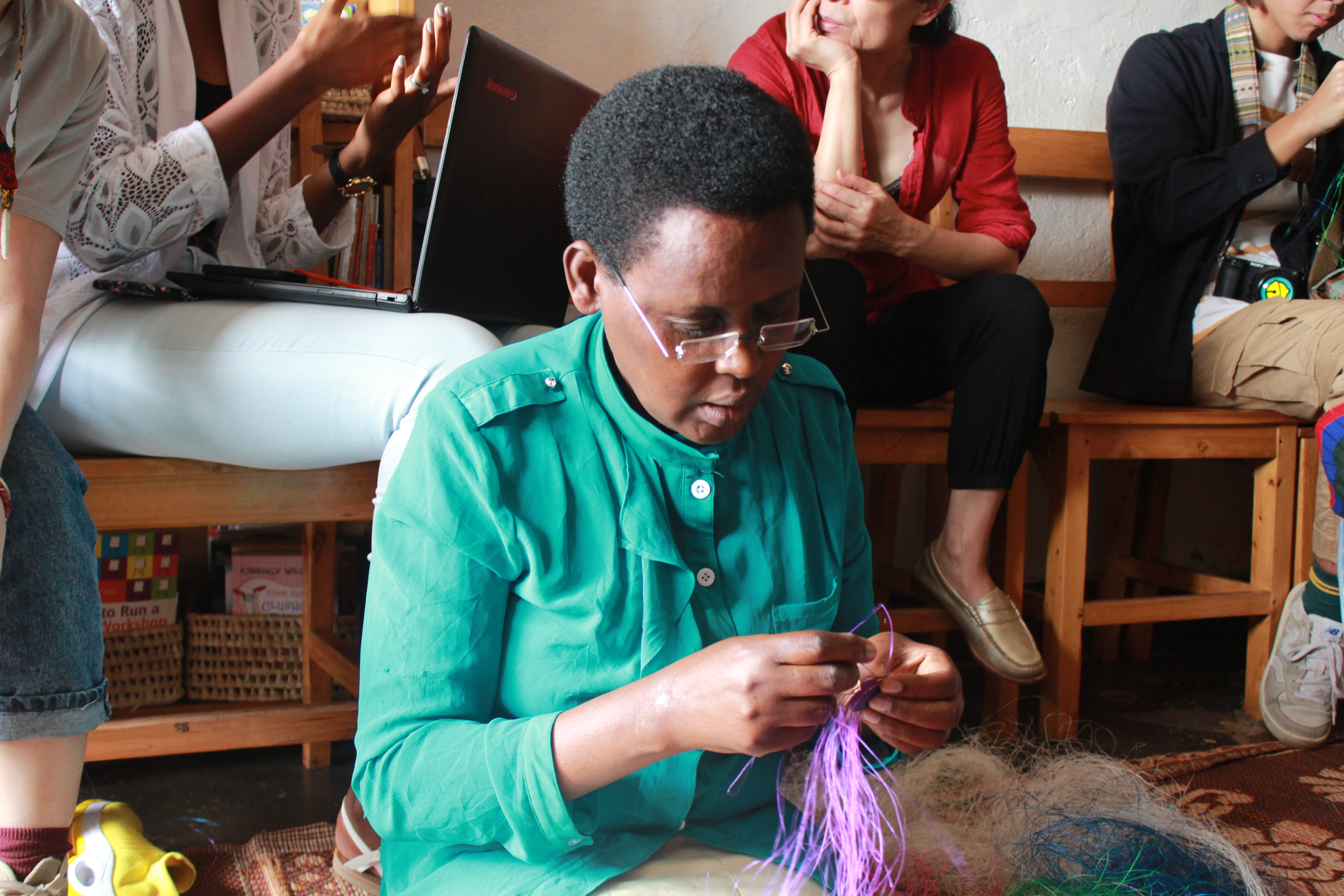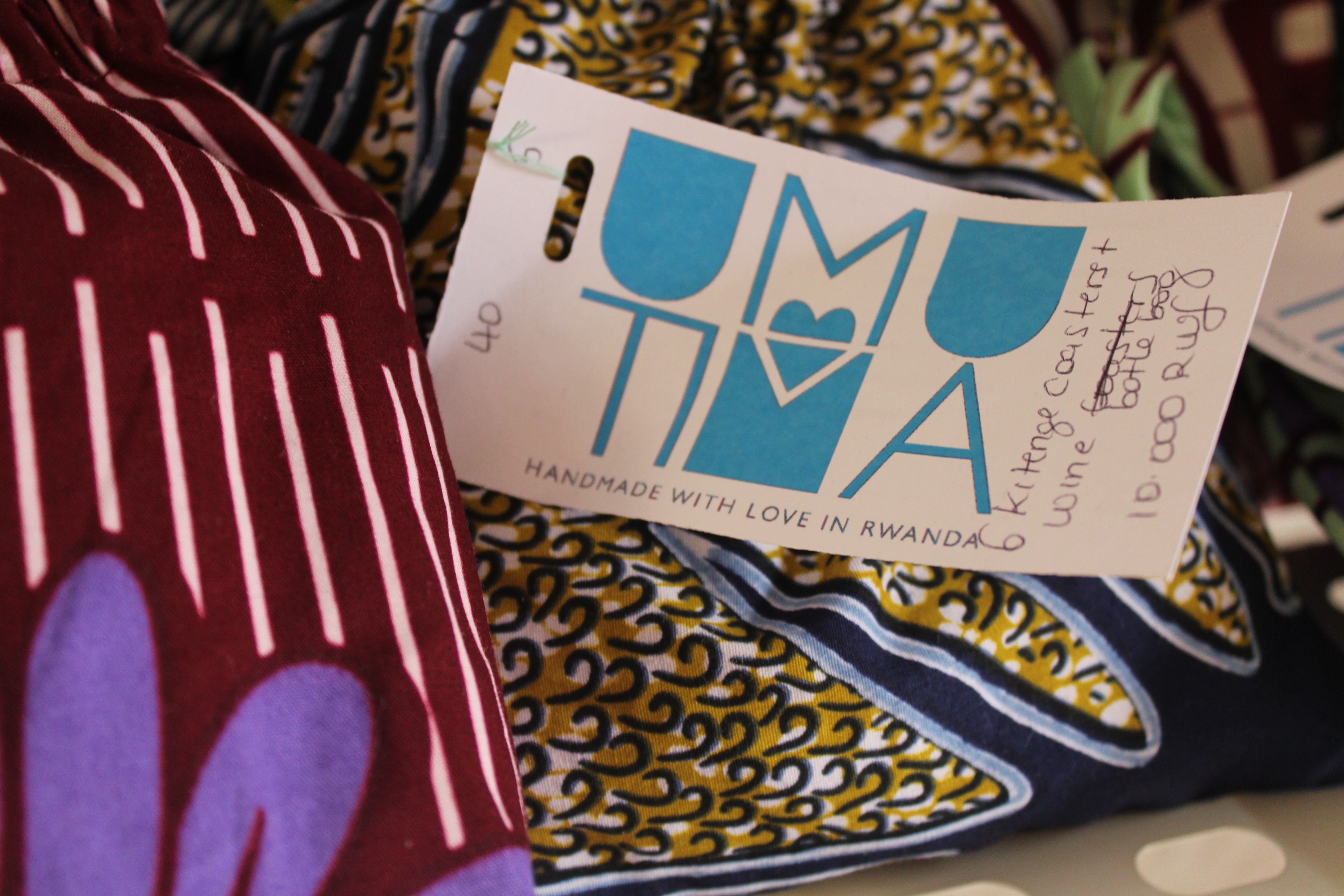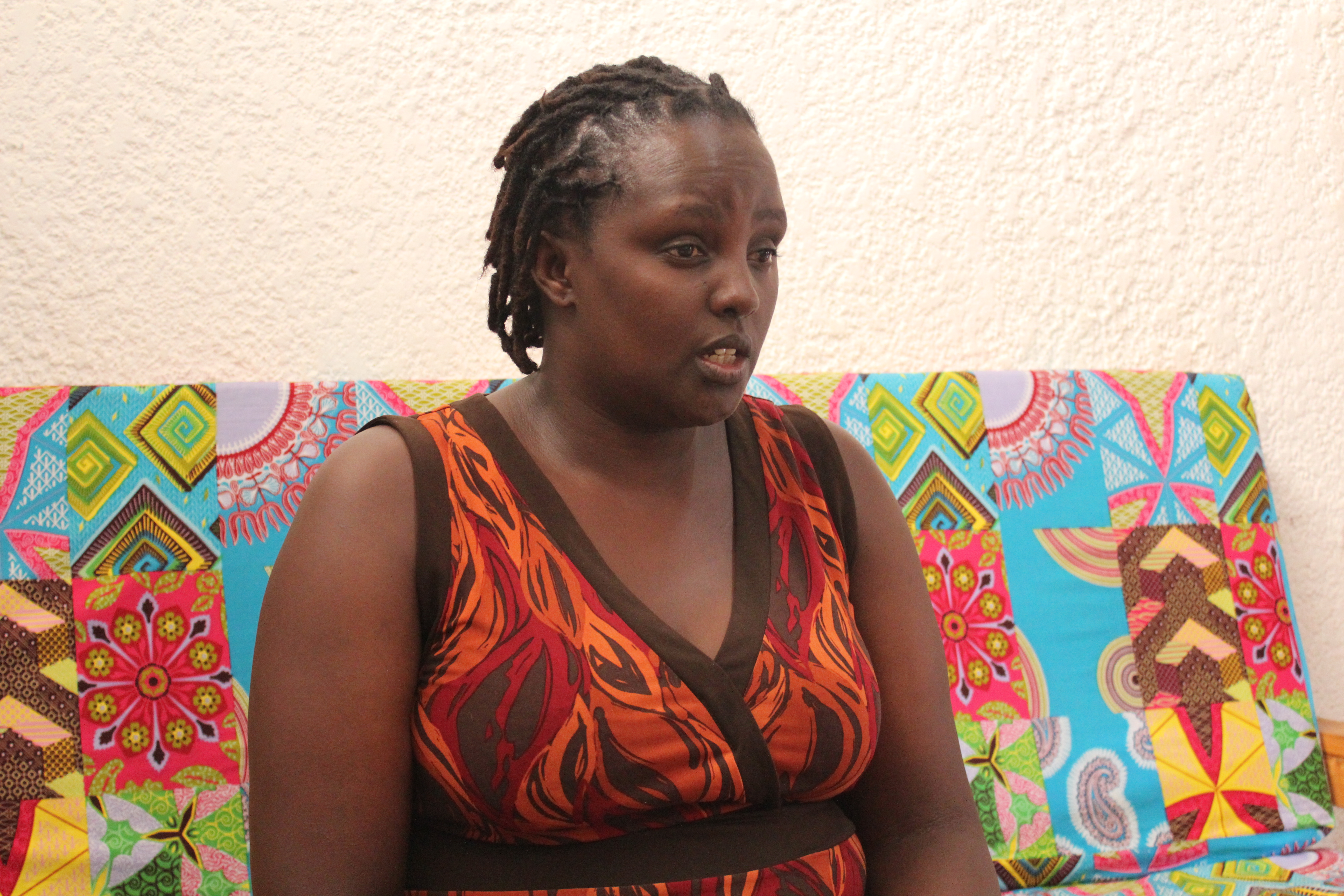Rwandan women’s group takes steps to self-sustainability and community empowerment

By Yoyo Chow and Candice Wong
There were only four sewing machines and a meeting room at the Nyamirambo Women’s Center when 18 Rwandese women first launched it in 2007. After years in operation, besides dozens of new sewing machines, there are also now computers, a moderate collection of English books and a small shop selling handicraft.
Located in Kigali, Rwanda’s capital, this women’s center aims to increase the business competitiveness of women by providing classes on weaving, English, computers, and literacy. Throughout the years, the group estimates they have helped more than 500 women.
“The women’s center welcomes everyone,” Mary Nyangoma, 44, vice president of the center, said. “We hope that the women settled in this neighborhood can get together and support each other,”
Before 2013, their operation was solely funded by the Peace Institute from Slovenia. The revenue generated from their local tours and interest classes for tourists was inadequate. More than once, it shut down for lack of money.
Monica Tabet-Gugolz, a Swiss woman who settled in Kigali with her family for four years, started Umutima, a cooperative which sells children clothes and housewares at the center’s shop. The income from the store helps keep the center self-sustaining.
Video by Monica Tabet-Gugolz
Mukeshimana Grace, 52, member of the cooperative, said working for the women’s center has been her major source of income since it pays her a fair wage as well as for the products she makes.
Ms. Mukeshimana decided to join the team after she took shelter from the rain in the center. She used to be a vendor selling handicrafts in a market with an unstable income, she said.
“We established a circular model that supported the work to go on, with or without outside funds. Today we are happy to accept donations, but we don’t want to depend on them,” Tabet-Gugolz wrote on the center’s blog.
To stand out from other local craft stores, the cooperative designs their own products with high vibrant fabrics. Sometimes, they may also look for external artisans who specialize in other traditional craftsmanship like basketry.
Alyce Nkesha, 47, a designer from Uganda, decided to order fabrics from the center to make cushions, after making visits to the U.S., China and Europe. She said she likes the flamboyant prints on the textile.
“I always support women’s group, “ she added.
Fledgling tourism in Rwanda also supports their operation, Ms. Nyangoma said, since they host walking tours in their neighborhood, hair-braiding classes, visits to tailor shops and cooking classes.
The center has hired more than 50 women as their income has increased and the scope of their training as also increased. They have done training against gender-based violence and established a free community library for children.
Ms. Nyangoma said local officials have been encouraging more women to join them and they also recruit new members by social networking.
“We hope to help as many women as possible,” she said.

The Nyamirambo Women’s Center, in the oldest area in Kigali, has helped approximately 500 Rwandan women. The center practices community-based tourism with classes on traditional culture and customs and trains women in sustainable crafts.

Mukeshimana Grace weaves a pair of earrings during a class for toursits. It is her major source of income, she said, adding that she feels bonded with the centre’s members as her support system in life.



Mary Nyangoma says the center seeks funding from the government on projects and is looking forward to center’s extension to help more Rwandan women.